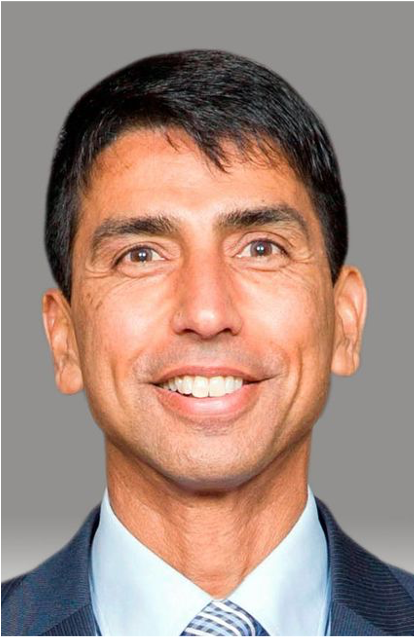Critical Spirituality in Leadership
“What do I stand for?” (Helfand & Zimbardo, 2021)
What if leaders reflected deeply on this question in connection to and with all our relations? In this episode we consider the possibilities that emerge from merging critical and spiritual approaches to leadership. Firstly, we begin by sharing our understandings of critical and spiritual.
The Critical:
The critique and disruption of existing power asymmetries in structures, ideas, practices, and relations that perpetuate the oppression of historically marginalized groups.
The Spiritual:
We see spirituality as concerned with, and aware of, the spirit, interconnectedness, the unseen, the mysterious, the sacred, and the unknowable (Dei, 2019). Spirituality moves beyond secular, colonial, individual conceptions that position religion as “bad” and spirituality as “good” (Shahjahan, 2010), and instead encourages attention to, and respect for different faith traditions (Butler, 2000). Furthermore, “religious identity is also complex, nuanced, fluid and resistant to essentialization” (Shipley, 2012, para. 20). “Neutral” or “secular” views often privilege agnostic or atheist traditions and worldviews (Ontario Human Rights Commission [OHRC], n.d.) and are “residually and normatively Christian” (Seljak et al, 2008). This leads to systemic faithism, which the OHRC (n.d.) describes as the ways that cultural and societal norms, systems, structures and institutions directly or indirectly, consciously or unwittingly, promote, sustain or entrench differential (dis)advantage for individuals and groups based on their faith (understood broadly to include religious and non-religious belief systems). Systemic faithism can adversely affect both religious and non-religious persons, depending on the context. For example, examining the concept of dualism (good vs. evil) present within dominant understandings of Christianity offers insights into how we can embrace the nuances, connections, complexities, and contradictions of differing spiritual and religious systems (Helfand & Zimbardo, 2021).
We consider Seljak et al.’s (2008) analysis of the close connections between religion, ethnicity and race in the Ontario context and caution that Christian privilege can result in anti-religious sentiment, ethno-religious alienation, polarization, and alienation, rooted in the belief that religious practices and identities are incompatible with Canadian identity and citizenship (OHRC, n.d.). This encourages the creation of religious “ghettoes” that may lead to religious radicalization and disengagement from Canadian public life (OHRC, n.d.). We heed Butler’s (2000) warning that spirituality may be commodified in modern schooling, reducing it to individual approaches instead of situating it in larger contexts of social struggle.
Critical Spirituality
The merging of critical and spiritual approaches to leadership invites transformation at multiple levels, such as Anzaldúa’s notion of spiritual activism that merges the inseparable practice of the inner work of spirituality and the outer work of activism (Keating, 2005) or Shahjahan’s (2010) understanding of critical spirituality as “ a movement from inward to outward action in the social world” (p. 478). Knowledge systems that prioritize our inherent interconnectedness, interdependence, and oneness, also figure prominently here. The notion of Ubuntu in African spirituality means "I am because we are"or “a person is a person through other persons'' (Hailey, 2008; Ngunjiri, 2010). Similarly, All My Relations speaks to the interconnectedness between the living and nonliving, past and present, that is known to most Native people in North America (King, 1992). In Lak’Ech is a Mayan philosophy of interconnectedness, which suggests that in harming others, we are harming ourselves, and in loving others, we are loving ourselves (Fernández, 2019). The Buddhist concept of interbeing, or Anatta in the Pali language, means non-self or the substance-less of all animate and inanimate objects, in which living things do not have a separate self and can only inter-be in relation to everything else (Nhat Hanh, 2020).
Our current theories and models of leadership leave much to be desired in the acknowledgment of spiritual ways of knowing. Drawing from critical theory as well as prophetic African American spirituality, Dantley (2003) describes how critical spirituality supports courageous confrontation of inequitable systems and sustains hope in planning for a more just future. He also suggests that critical spirituality “not only deconstructs asymmetrical relations of power that dominate the educational system but can also be instrumental in prescribing acts of reflective resistance purposed to bring about a radical reconstruction of schools” (Dantley, 2003, p. 3). We urge that a deeper understanding of the “intersections of multiple structures of oppression and domination on the self-perceptions and experiences of Religiously Minoritized People of Colour (RMPOC)” (Rashad & Stewart, 2021, p. 148) would offer further insights into collectively working towards a more equitable world. For example, we cannot understand systems of white supremacy outside of understandings of Christian hegemony and settler/colonialism, intersections that gave rise to what we now know as “Canada”.
Like Gardner (2011), we question whether spirituality can transform the world. Spiritual connection may offer leaders a sense of purpose, belonging, strength, fortitude, hope for justice yet realized, and responsibility to communities past, present and future. It connects multiple “critical and interconnected approaches to schooling that center and disrupt power asymmetries and invite inner knowledge and healing” (Shah, 2022, p. 60). As such, we turn to Thich Nhat Hanh’s notion of Socially Engaged Buddhism, which promotes embodied, inner knowing and social action through self-observation, compassionate inquiry, grassroots empowerment, and nonjudgement (Shah, 2019). This is similar to bell hooks’ (1994) notion of engaged pedagogy, which suggests that teachers can attend to the souls of their students by facilitating their intellectual and spiritual development.
Critical spirituality in leadership honours the role of spirituality and ancestral knowledges (Dantley, 2010; Frick, Parsons & Frick, 2019; Khalifa, Khalil, Marsh & Halloran, 2019). It also honours the importance of self-awareness by inviting us to explore how our conceptions of self in relation to others, connection to something greater than ourselves, experiences with the mysterious and the unknown, as well as our fantasies, conscious and unconscious traumas, fears, insecurities, hidden desires, and longings influence how and why we lead, and how we and why we engage in activism. This awareness encourages us to see the connections between our fragmented and whole selves, making space for us to examine our contradictions, our complexities, and our complicities. We might contemplate: “How might my ego mind perpetuate the very violence, inequity, and oppression that I seek to dismantle in the world?” (Shah, 2019, p. 51). We might release illusions of certainty, control, comfort, and security, and we might see ourselves as “harmed and harming, more or less honest, more or less able to be conscious when triggered, more or less manipulative, more or less willing to take responsibility for our own change, more or less caught in patterns” (Hemphill, 2019, para. 6). As such, critical spirituality prioritizes healing through embodied and contemplative practices that free us from sources of separation and fragmentation. In this way, a commitment to self-awareness, inner knowing, and healing internalized and intergenerational trauma, oppression, and domination might be viewed as a leadership competency.
While spirituality and faith are central to leadership practices, they are rarely acknowledged and examined. A spiritual practice in leadership is important to managing stress and remaining grounded in times of crisis, as well as leading in integrity with our highest values in systems that often ask us to lead in ways that distance us from ourselves (Shah et al., 2002). Through an exploration of various silenced expressions of faith and spirituality, we hope to bring light to subjugated knowledge systems and wisdom traditions and philosophies of leadership, as well as explore common characteristics of spiritual leadership across faiths. Finally, we seek to open a space for the celebration of our full humanity and belonging to each other.
Reflection Questions:
- What are the ways in which we continuously examine how we are showing up as educational leaders with the critical awareness of ourselves in relation to others and our environment?
- Within our current educational settings, what do secularism and pluralism offer and foreclose?
- How might acknowledging spiritual and faith-based leadership practices disrupt taken-for granted assumptions of neutrality that mask Christian hegemony, settler colonialism and white supremacy?
- What do we need and who do we need to be to lead as critically spiritual beings?
- How might we apply this understanding to the work we do in communities, schools, and academies?
References
Dantley, M.E. (2003). Critical spirituality: enhancing transformative leadership through critical theory and African American prophetic spirituality. International Journal of Leadership in Education, 6(1), 3-17.
Dei, G. J.S. (2002). Spiritual knowing and transformative learning. NALL working paper #59. https://nall.oise.utoronto.ca/res/59GeorgeDei.pdf
hooks, b. (1994). Teaching to Transgress: Education as the Practice of Freedom. Routledge.
Frick, W.C., Parsons, J. & Frick, J.E. (2019). Disarming privilege to achieve equitable school communities: A spiritually attuned school Leadership response to our storied lives. Interchange, 50,549–568. https://doi.org/10.1007/s10780-019-09375-z
Gardner, F. (2011). Critical spirituality: A holistic approach to contemporary practice. Routledge.
Helfand, J. T. & Zimbardo, Z. (Host). (2021, September 3). Episode 2: Understanding and dismantling Christian hegemony with Paul Kivel [Audio podcast episode]. In White Noise Collective Podcast. https://www.conspireforchange.org/Podcast-episodes/episode-2-understanding-and-dismantling-christian-hegemony-with-paul-kivel-2/
Hemphill. P. (2019, July 5). Letting go of innocence. Prentis Hemphill. https://prentishemphill.com/blog/2019/7/5/letting-go-of-innocence
Keating A. (2005) Shifting perspectives: Spiritual activism, social transformation, and the politics of spirit. In A. Keating A. (Ed.) EntreMundos/AmongWorlds (pp. 241-254). Palgrave Macmillan.
Khalifa M.A., Khalil D., Marsh T.E.J., & Halloran C. (2019). Toward an Indigenous, decolonizing school leadership: A literature review. Educational Administration Quarterly, 55(4), 571-614.
Nhat Hanh, T. (2020). Interbeing: The 14 mindfulness trainings of Engaged Buddhism. (4th edition). Parallax Press.
Ontario Human Rights Commission. (n.d.). Systemic faithism. http://www.ohrc.on.ca/en/iii-background-and-context/4-systemic-faithism
Seljak, D., Schmidt, A., Stewart, A., & Bramadat, P. (2008). Secularization and the separation of church and state in Canada. Canadian Diversity, 6(1), 6-24.
Shah, V. (2022). Critical, interconnected approaches to professional engagements. The Journal of Educational Foundations, 35 (1), 52-79. https://eric.ed.gov/?id=EJ1358850
Shah, V. (2019). Calling in the self: Centering Socially Engaged Buddhism in critical pedagogy through personal narrative. International Journal of Critical Pedagogy, 10(2), 45-67.
Shah, V., Aoudeh, N., Cuglievan-Mindreau, G., & Flessa, J. (2022). Subverting whiteness and amplifying anti-racisms: Mid-level district leadership for racial justice. Journal of School Leadership. https://doi.org/10.1177/10526846221095752
Shahjahan, R. A. (2010). Toward a spiritual praxis: The role of spirituality among faculty of color teaching for social justice. The Review of Higher Education, 33(4), 473-512.
Shipley, H. (2012). Human rights, sexuality, and religion: Between policy and identity. Creed, freedom of religion and human rights. Ontario Human Rights Commission. https://www.ohrc.on.ca/en/creed-freedom-religion-and-human-rights-special-issue-diversity-magazine-volume-93-summer-2012/human-rights-sexuality-and-religion-between-policy-and-identity
Wane, N., Manyimo, E. & Ritskes, E.J. (Eds.). (2011). Spirituality, education & society: An integrated approach. Rotterdam: Sense Publication.
Additional Recommended Resources:
Capper, C. A., Hafner, M. M., & Keyes, M. W. (2002). The role of community in spiritually centered leadership for justice. School as community: From promise to practice, 77-94. Rashad, K. & Stewart, D. (2021) Racializing Faith: The intersections of racism and (White) Christian hegemony. In C. Wijeyesinghe (Ed.), The complexities of race: Identity, power, and justice in an evolving America (pp. 148-171). New York, USA: New York University Press.
Shenvi, N. (2021). Subverting Christian hegemony: A semi-review of Joshi’s White Christian privilege. Neil Shenvi-Apologetics. https://shenviapologetics.com/subverting-christian-hegemony-a-semi-review-of-joshis-white-christian-privilege/
Panelists
Hiren Mistry
Hiren Mistry is a 2nd generation Canadian with Hindu Gujarati roots. He has been in the field of education for over 20 years serving students and communities in different roles. He describes himself as a post 9/11 educator. He has applied insights from the critical study of religion into his pedagogy and practice as a classroom teacher and as a centrally assigned equity lead. He has spent a dedicated time in his roles as a teacher, curriculum head, centrally assigned equity coordinator and researcher listening to the ways that students articulate their understanding of religion, faith, identity and belonging. Hiren has over 15 years of experience connecting human rights theory to practice in public & higher education, with community groups and non-profit organizations. He is a former seconded lecturer at York University (Faculty of Education), and is currently completing his doctorate in Higher Education and Leadership at the University of Toronto (Ontario Institute for Studies in Education) focusing on the intersection of policy, religious diversity and leadership.
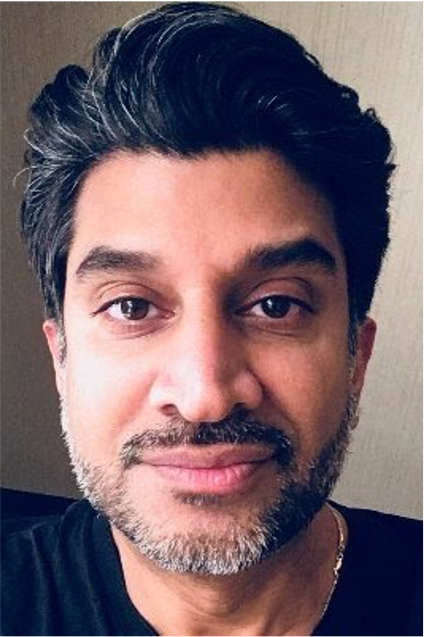
Ixchel Bennett
Ixchel Bennett is Indigenous Nahua/Zapoteca from Tenochtitlán (Mexico City). She has been in the field of education for over 16 years serving in different capacities. Her passion as an educator has provided her with a vast wealth of experience in the areas of Special Education, English as a Second Language, and interweaving Indigenous education into the curriculum and schools. Ixchel has also written curriculum for various publishers in Indigenous education and mathematics. She was an A.Q. instructor at York University, where she shared her knowledge about building relationships through critical spirituality. She is currently a vice-principal at Eastview P.S. with a large Indigenous community. It is the only dual-track school at TDSB whereby Indigenous and non-Indigenous people interact in a respectful and reciprocal environment. Ixchel's leadership style is through a Whol[E]istic approach that considers the spiritual, emotional, mental and physical aspects of a person equally. Ixchel was seconded at York University as a course director and practicum facilitator for the Keele program and the first Waaban Indigenous teacher education cohort. She graduated from the first cohort in the M.Ed. in Urban Aboriginal Education from York University, exploring ways of interweaving Indigenous education into schools. Ixchel is a student in the first Indigenous Ph.D. cohort at York University, researching Indigenous students' experiences in Indigenous educational programs.
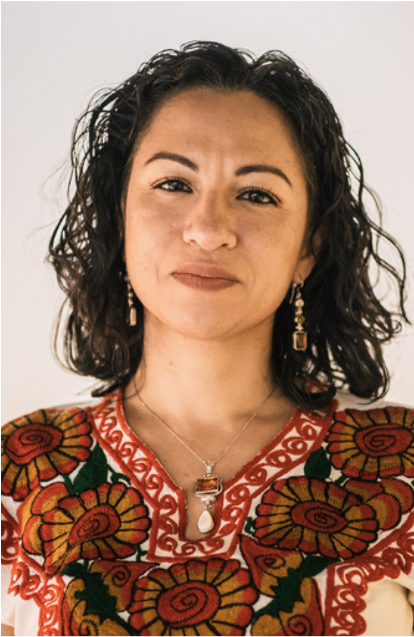
jeewan chanicka
jeewan chanicka is currently the CEO/Superintendent of a growing International American School system based in Dubai. He is the former Superintendent of Equity, Anti-Racism & Anti-Oppression and Superintendent of Schools in Canada's largest school district - Toronto District School Board. He currently serves on the Community Advisory Group for the Ontario Human Rights Commission and served on the Anti-Racism Directorate's Provincial Roundtable on Islamophobia while it was operational. jeewan's professional past includes his work as an Education Officer at the Ministry of Education in Ontario in the Inclusive Education Branch and prior to that, a principal and teacher in York Region District School Board. He has also worked in the international education setting as a teacher and curriculum writer.
He has a BA in Conflict Resolution and Culturally Appropriate Forms of Mediation and his Masters Degree in Education. jeewan has had a rich career which includes consultation with the United Nations University of Peace as part of a team to develop a curriculum framework on Peace Education in the Islamic context implemented in various parts of the world. In 2015, jeewan and his school staff & community received the Premier's Safe and Accepting School's award. The school used Inclusive Design as transformative process with a focus on social justice to shift school culture and practice. Critical Spirituality has been a focus of jeewan's over the past 20 years as a tool for self-transformation and as a basis engaging in justice/change work. His practice continues to evolve as he grows, learns, unlearns, understands and does.
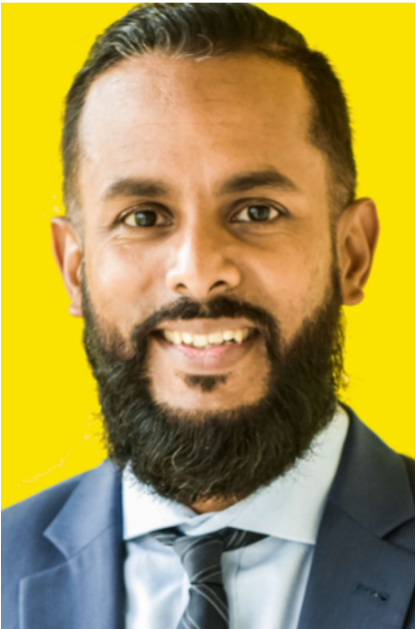
Fiona Gardner
Fiona Gardner coordinates social work education across four rural campuses in Victoria, Australia as an Associate Professor and Discipline Lead for Social Work and Social Policy at La Trobe University’s Rural Health School. She emigrated with her family from Scotland as a child and now lives in a regional city in Victoria, Australia. Fiona has practiced social work across many areas of northern Victoria and her experience of the lack of social workers and local social work education led to her commitment to providing accessible social work education in rural communities. Her research focuses on the value of critical reflection and critical spirituality as frameworks for understanding and engaging more deeply with issues for individuals and communities in social work practice. Her teaching emphasizes developing the capacity to be critically reflective across all areas of social work practice to encourage self-awareness, critical understanding and holistic practice. She has also taught critical spirituality to pastoral carers/wellbeing workers to include in their practice and in supervision. Relevant publications here include Critical Spiritualty: A Holistic Approach to Contemporary Practice and she is currently writing a book on embedding spirituality and religion in social work practice.
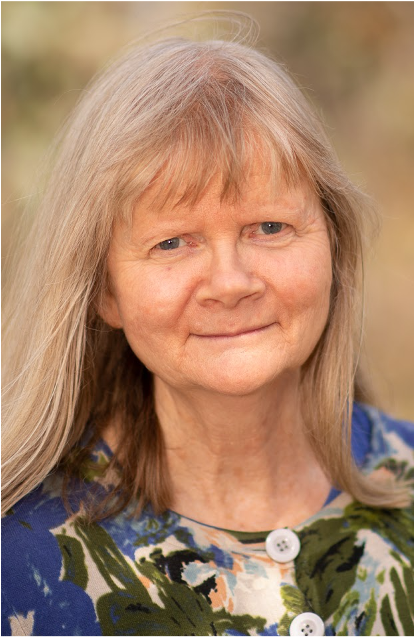
Bruce Rodrigues
Bruce Rodrigues is currently the government appointed supervisor of the Peel District School Board. He is also currently the Chancellor of the University of St. Jerome’s at the University of Waterloo.
Bruce is the former Deputy Minister of Education and Early Years and Child Care in the Province of Ontario. Before joining the ministry, he was the CEO of Ontario’s Education Quality and Accountability Office (EQAO) where he led a new strategic plan for the organization and worked to modernize the provincial assessment program.
Bruce has held several senior leadership roles including as Director of Education of the Toronto Catholic District School Board and Associate Director of Education of the Waterloo Catholic District School Board. Mr. Rodrigues was also responsible for the creation of the Equity Secretariat at the Ministry while Deputy Minister. Bruce is also a seasoned educator of over 33 years. He was a secondary school teacher, where he taught Math, English and the Social Sciences. He also held positions of vice-principal, principal and superintendent before becoming director.
On a personal note, Bruce grew up in the Jane and Finch neighbourhood in Toronto and has a long history of involvement with issues related to equity, diversity and inclusion. Mr. Rodrigues also has a strong demonstrated commitment to issues of peace and justice. Bruce’s outstanding track record in Ontario’s publicly funded education system and his commitment and passion for putting students at heart of his work reflects his deep devotion to student success that has been the hallmark of his career.
